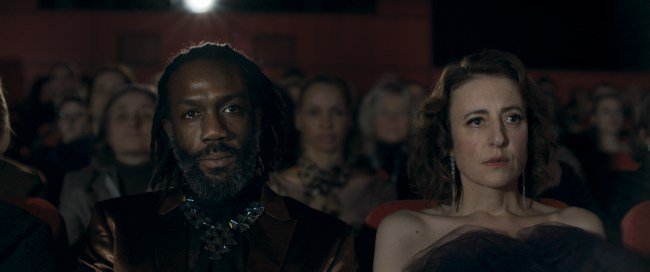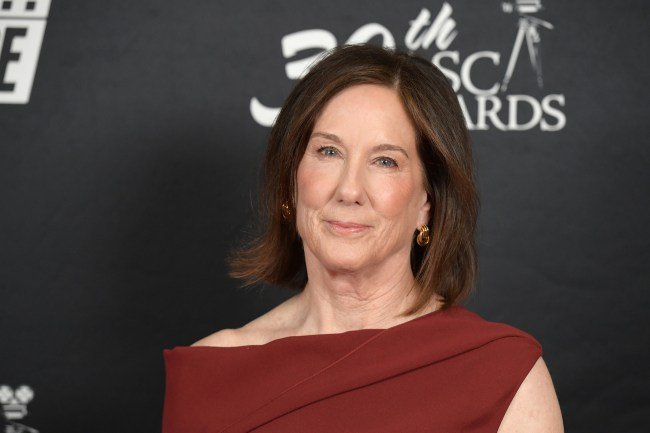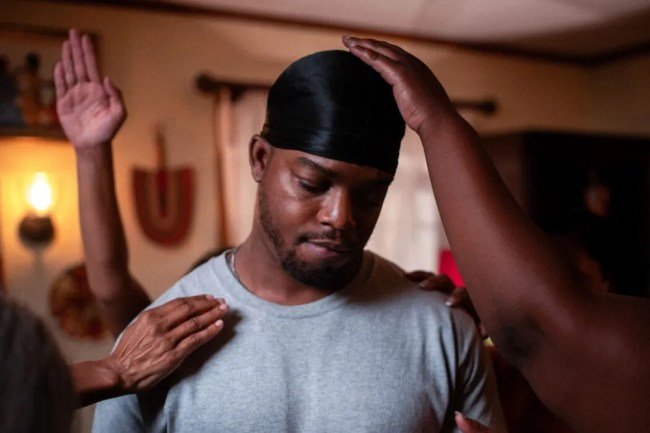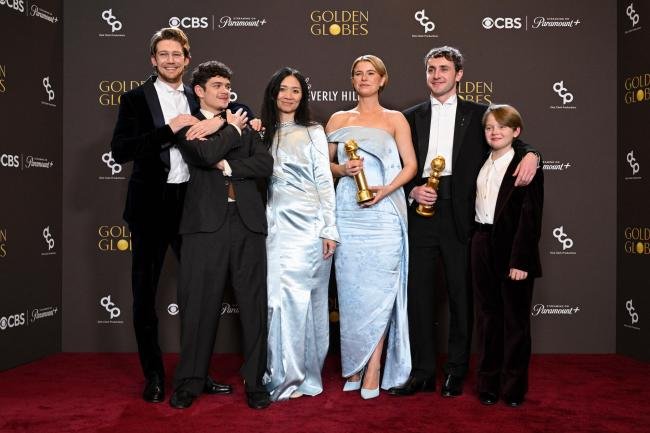‘Gavagai’ Director on Rewriting Euripides for the Film Industry Set

In Ulrich Köhler’s New York Film Festival world premiere “Gavagai,” a filmmaker and her star are taken to task for making a reverse-engineered “Medea” in Senegal.
The Euripides play, about a woman who murders her own children as a tribute to the man she loves and is obsessed with, is here recast as a story of a white woman (Maren Eggert, playing the actress in the film within the film) ostracized by a Black African community — and in a movie-within-the-movie directed by a filmmaker (Nathalie Richard) who looks curiously like Claire Denis. (The director said, in a conversation with IndieWire, that this is pure coincidence.) Meanwhile, at that film’s Berlin Film Festival premiere, its star Nourou (Jean-Christophe Folly) is in freefall after a racially troubling run-in with a Polish hotel security heavy.
Köhler is a filmmaker whose partner, in real life, is Maren Ade, the writer/director of films including the Oscar-nominated screwball classic “Toni Erdmann” and the breakup drama “Everyone Else.” As Köhler explained to IndieWire, the two collaborate and give feedback on each other’s films. “Gavagai” is not quite a comedy, not quite a drama, not quite an industry satire, with a tone that is ever-shifting from the comedic to the privilege-interrogating serious. It’s one of a handful of world premieres at the New York Film Festival, and a movie that will delight insiders and festival-goers for its sharp critique of how movies are delivered into the world: Köhler shot the film during the actual Berlin Film Festival, and uses its headquarters as grounds for an inquiry into the charged landscape of who-gets-to-direct-what filmmaking questions in 2025.
“It’s about something very serious at the base, but its protagonists are all privileged people, so the fallout from what happens is psychologically tough, but they will not end up in the street,” Köhler said. “In this setting, with actors and a director as the main protagonists, I felt I could do what I did.”
Köhler previously directed the film “Sleeping Sickness,” which he shot in Cameroon, and experiences from that movie shooting in Africa led to this one. “The central scene in Berlin, the racial-profiling scene, is something that really happened during the premiere of ‘Sleeping Sickness,’” Köhler said of “Gavagai,” referring to an incident that happened with that film’s star (and this one’s), Jean-Christophe Folly. “The white savior who went over the top out of guilt was me,” the director said, whereas in “Gavagai,” Maren Eggert’s character, the film-within-the-film’s lead, rushes to Nourou’s aid once a Polish security detail asks him for his ID but no one else’s.
“The security guy who started the whole thing was a Polish guy who didn’t speak German very well, and with whom Jean-Christophe and later me got into a fight,” Köhler said. “The one who suffered most by this was obviously Jean-Christophe because his festival experience, and the fact that this was his first feature film with a major role that was playing in an a festival in competition, he didn’t really get to enjoy that because that guy and the hotel politics destroyed his experience. But then, also, I added to that, thinking I would help him.”

As for the director Caroline Lescot’s (Nathalie Richard) likeness to Claire Denis — herself a filmmaker who has interrogated colonialism throughout her career, from “White Material” to “35 Shots of Rum” — Köhler said it was “not intentional. I found it more interesting to have a female director than a male. For me, she’s an alter-ego. But I found it more interesting than just having the usual old white man behaving badly. It seemed like a more complex (situation). Especially with ‘Medea’ as the film within the film. For me, you could say that Caroline is really taking it on from a feminist perspective, and kind of not really thinking through the racial issues involved in turning around history, and having a white Medea rejected by African people.”
There’s a scene in the film in which Caroline is grilled at a press conference about her implications in rewriting the Euripides text, and she quotes James Baldwin, which isn’t helpful for the demanding press corps. “She references Baldwin’s text about being the first Black person in a Swiss village, and he explains pretty well why it’s not the same as when a white person, from a position of power and privilege, arrives in an African village that hasn’t seen any white person before, it’s a very different situation from a Black man arriving in a village in Europe,” Köhler said.
“I hope I haven’t behaved all that badly, but I think the pressure situation that filmmakers, authors are under is quite tough with the economic restraints and also with always having to justify yourself because maybe you’re not making movies that make a lot of money, but you’re still asking for a lot,” Köhler said. “I don’t think you will find many directors who would say they are not capable of that kind of behavior.”
As for Köhler’s collaboration with Ade, who is the first person to see a rough cut of his films, he said, “When we didn’t have children, it was much more intense. Now it’s about really finding time to do it.”





